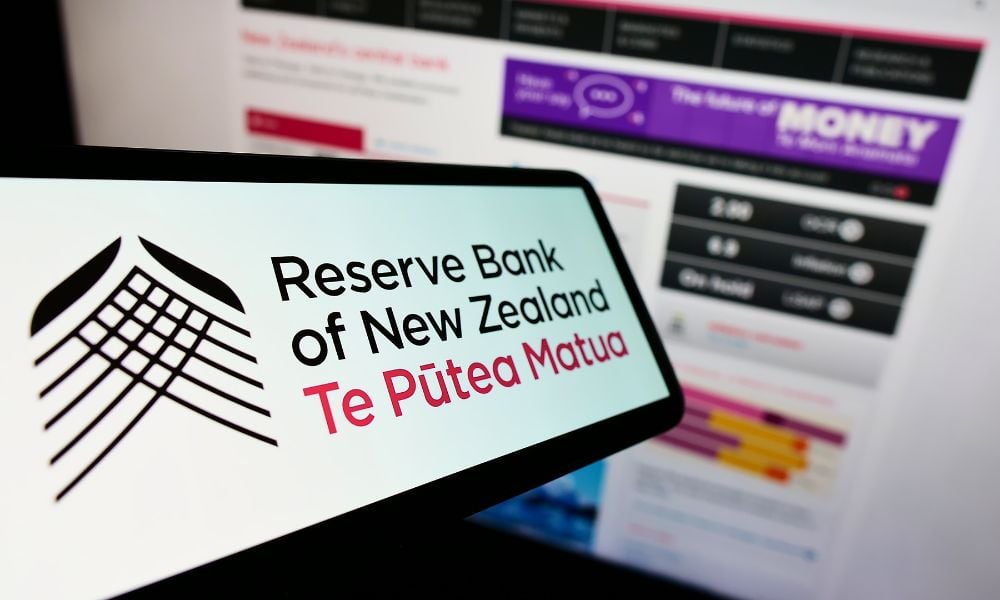Here's what market participants are saying

The consensus is out: Kiwi market participants are expecting the Reserve Bank of New Zealand (RBNZ) will cut the official cash rate (OCR) at its meeting this week.
The nation's central bank meets this Tuesday and Wednesday, (the RBNZ's second meeting in 2025), to discuss monetary policy.
Market players, including all of New Zealand's big banks — ANZ, ASB, BNZ, Kiwibank and Westpac — have predicted the bank will slash rates by another 25 basis points, from the current 3.75% down to 3.50%.
"The RBNZ will retain an easing bias," Kelly Eckhold, chief economist at Westpac NZ, wrote in a note. "The RBNZ will likely note the economy was stronger than expected in late 2024 and that the recent data flow suggests growth has continued.
"The RBNZ is likely to note the inflation outlook remains at least as firm as previously expected and that developments on that front will be an important driver of the need for further OCR cuts in 2025," Eckhold continued. "We expect commentary on the weakening in the outlook in some trading partner economies, but also uncertainty on how global activity will evolve. This is the stance other central banks have taken to date. We think the MPC’s objective will be to leave the option of pausing the easing cycle on the table at each meeting from here."
Kiwibank economists added: "Monetary policy is still restrictive, far from stimulatory. We have recorded a deep, prolonged and painful recession. We are crawling out of this recession. Policy should be set to get the economy back on its feet and running in the right direction.
"Interest rates should be at a neutral setting, around 3%, at least," the Kiwibank note continued. "And a good argument is being made for a slightly stimulatory position, around 2.5%."
In February, the RBNZ cut the OCR by 50 basis points to 3.75%, down from 4.25%. The latest cut equals a cumulative 175 basis point reduction in rates since August 2024.
Former RBNZ Governor Adrian Orr said in February, during his televised address, that the bank's decision to continue reducing rates was at least in part because New Zealand's inflation rates were well within the bank's target range. He also alluded to the fact that the bank expects to lower rates again in 2025. The news set off a wave of optimism among mortgage holders and investors alike, with many advisers reporting increased inquiries among first-time homebuyers and those looking to refinance.
But New Zealand has been battling conflicting market pressures for several months as the nation continues to recover from what some have viewed as a recession. While interest rates are at a new low, inflationary pressures, falling property prices and increased unemployment have kept the dream of homeownership out of sight for many Kiwis.
"Both house sales and mortgage approvals point to increasing levels of housing activity since the second half of last year, trending higher as mortgage rates have been progressively lowered," Eckhold said. "House prices are on an improving trend, but not booming as there remains a considerable stock of inventory on the market for demand to work through."
But the economist also pointed out that "consumer confidence has slipped a little in the last month or so, but remains on an improving trend. The recent tick lower in confidence may reflect uncertainty associated with the global outlook, as well as lingering concerns about job security."
Meanwhile, New Zealand, like all countries around the world, is also navigating US President Donald Trump's sweeping international tariffs, and the potential impacts. With Trump's most recent round of tariffs — what the US president has dubbed "liberation day tariffs" — New Zealand exports are subject to an additional 10% tariff.
"That's going to cost us about $900 million a year," Eckhold said. "For New Zealand, the impact is likely to be growth negative. But also, it will boost inflation, at least for a while. The saving grace here is that at least our tariff increases were at the lower end of what was seen globally.
"For the Reserve Bank's part, that probably means that they're going to be happy enough to continue to cut rates for a while, certainly while all this international drama is going on," he added.



